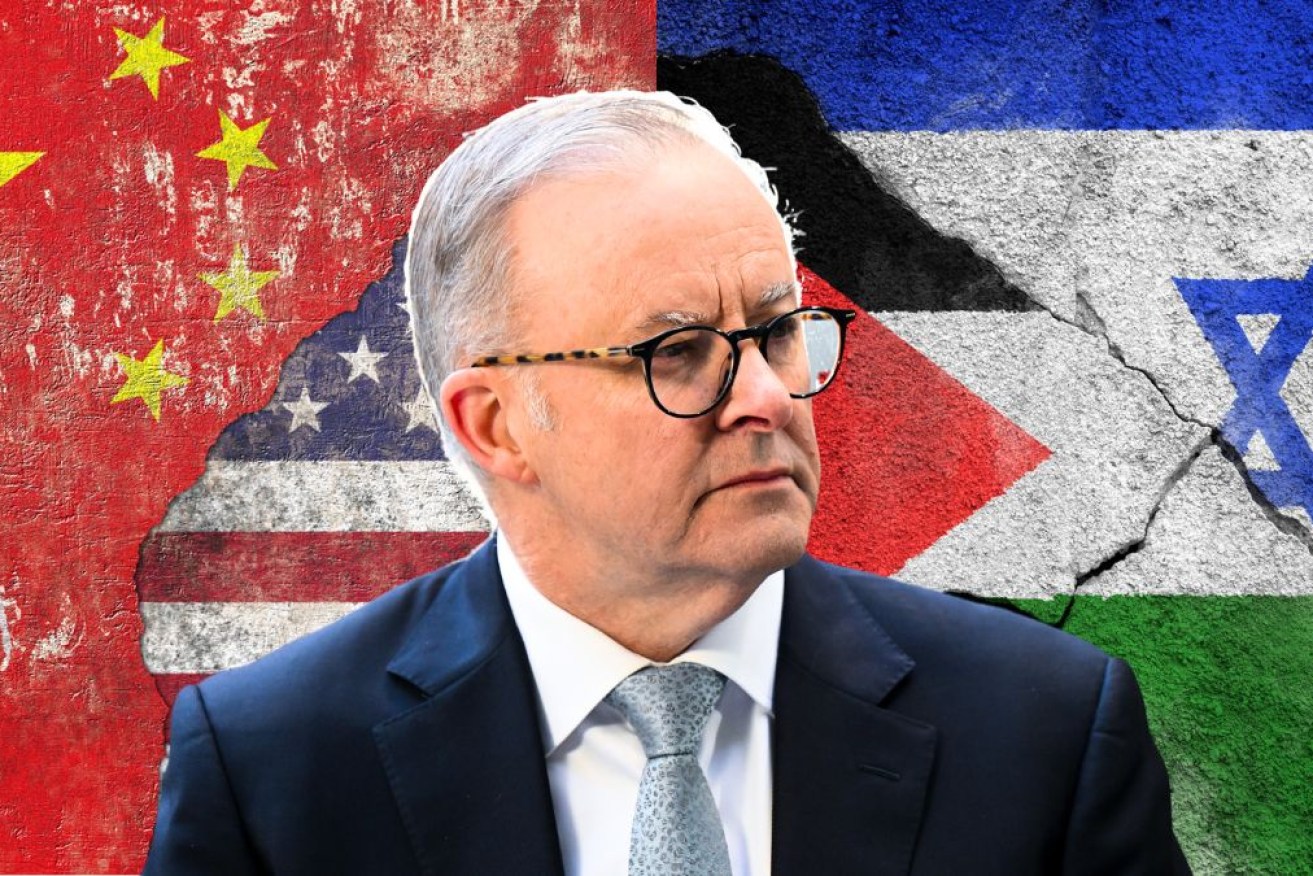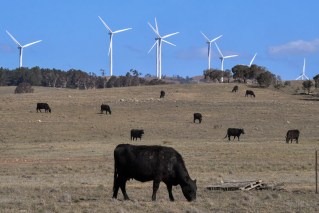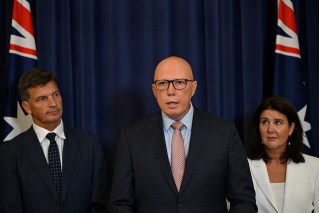Paul Bongiorno: Partisan politics serving the national interest poorly in very troubling times


Peter Dutton is inflaming foreign policy debate at every opportunity, Paul Bongiorno writes. Photo: TND
The Albanese government is walking a tightrope between Washington and Beijing, but holding its balance here is proving much less challenging than its response to the Israel/Gaza conflict.
During his visit to the United States, the Prime Minister was able to grab the safety blanket formula he and Foreign Minister Penny Wong trot out whenever questions are raised if they are being too accommodating in Beijing’s regard.
Albanese, in his joint news conference with President Joe Biden and on his return home, assures us that his government will “co-operate with China where we can, disagree where we must and engage in our national interest”.
The Prime Minister is on pretty safe ground with the US, our most important strategic ally in prosecuting this approach. After all, it is replicated by the Americans themselves.
‘Extreme competition’
At the same time as Albanese was in Washington, a high-level delegation from Beijing was meeting with the US State Department and Biden signalled that he was looking forward to meeting President Xi Jinping at the APEC summit in San Francisco next month.
Biden, in fact, says no world leader has personally engaged the Chinese President more times than his 68 hours of private meetings.
And while the President said America would engage in “extreme competition” with China, especially in the Indo-Pacific, Biden went out of his way to stress, “extreme competition was not conflict”.
Indeed, America’s extreme competition came at Australia’s expense during Donald Trump’s “trade war” with China.
US farmers were more than happy to supply China with the $900 million worth of barley that Australian growers lost when hit by trade bans in retaliation for the inept way the Morrison government was handling Beijing’s “wolf warrior diplomacy”.
Opposition Leader Peter Dutton says the Opposition is “very happy for the visit, but there are some tough messages the Prime Minister will have to deliver”.
Albanese would be very wary of accepting such advice from the former defence minister, who openly canvassed the prospect of a war with China before the last election only to see voters, particularly Chinese-Australians, reject such counterproductive and hollow sabre rattling.
Dutton playing with fire
The success the Albanese government is having stabilising the relationship with China, which is responsible for one in four of our export dollars, blunts Dutton’s relentless attacks on the PM’s competence and service of the national interest.
But the Opposition Leader is playing with fire breaking the conventional bipartisanship on foreign policy when it comes to Australia’s response to the crisis building in the Middle East.
Instead of heeding the warnings of ASIO boss Mike Burgess and trying to keep the temperature down, Dutton is ramping up his attacks on Albanese for getting the response to the Hamas atrocity “all wrong”.
Never mind that he worked with the Prime Minister on Parliament’s response condemning the murderous terrorist attacks on innocent Israelis and calling for the immediate release of hostages.
Dutton has been told by leaders of the Jewish community that they are disappointed the Prime Minister and Foreign Minister have not been supportive enough of Israel.
It does not bear scrutiny, even if you take into account senior minister Tony Burke’s criticism of “competitive grief” that if somehow you express sympathy for Palestinian deaths you are denying the pain of Israeli and Jewish families.
What worries the Foreign Minister is the use of emotive language like “collective punishment” or “genocide”, which Burke did not use but two of his colleagues who are Muslim, Ed Husic and Anne Aly, did while at the same time condemning the Hamas terrorism.
But in calling the Prime Minister weak for not sacking Burke or pulling his ministers publicly into line, Dutton is inflaming the situation especially when he wilfully accused Burke of failing to condemn Hamas when, like Husic and Aly, he explicitly did.
Penny Wong on Monday said she did not think Dutton looking for differences on this dreadful situation to score political points was the right thing for the country.
To Wong’s mind, in line with the concerns of domestic intelligence security chief Burgess, Dutton’s politicking puts at risk social cohesion.
She says “this is a very difficult time for many in Australia. It’s not the time for Mr Dutton to be playing politics,” but she added, “I’m not sure he knows anything else.”
Paul Bongiorno AM is a veteran of the Canberra Press Gallery, with more than 40 years’ experience covering Australian politics








